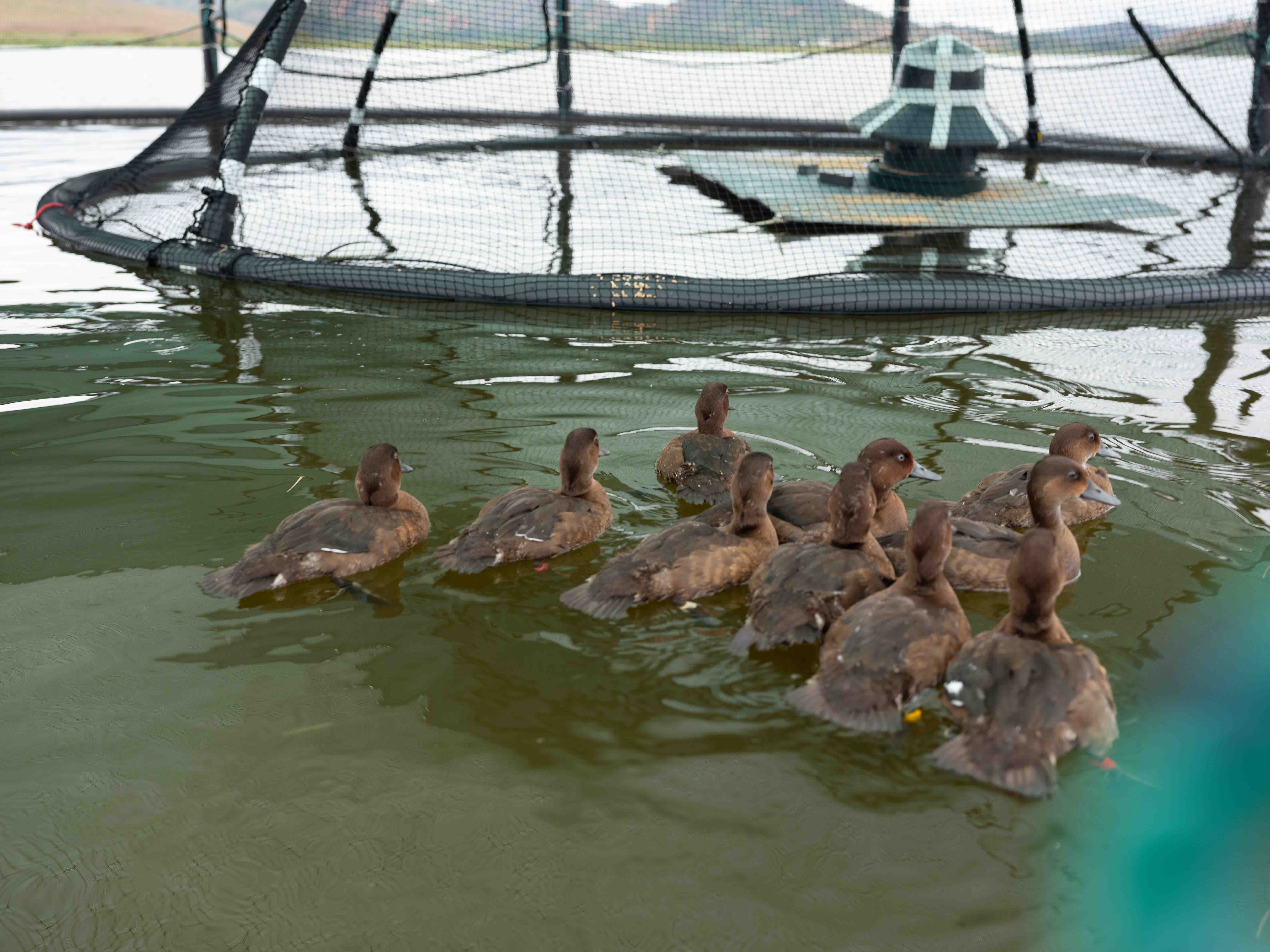New home for Critically Endangered duck
A group of Madagascan Pochard has been relocated thanks to the first-ever use of floating aviaries. The species was thought to be extinct just 15 years ago, but it's been brought back from the brink and given a new home on a waterbody in northern Madagascar.
Twenty-one birds spent a week in the safety of the world's first floating aviaries – a pioneering approach that allows them to become accustomed to their new surroundings while increasing the chances they will remain at the site after release – on Lake Sofia. The state of other wetlands in Madagascar is so poor that they will likely not survive if they leave the lake.

The flock of Madagascan Pochard in their new aviary (WWT).
The ducks were then released from the aviaries earlier this month and very quickly adapted to their new home, diving and flying, associating with other wild ducks, and returning to the safety of the floating aviaries to feed and roost. The Wildfowl and Wetlands Trust (WWT), Durrell Wildlife Conservation Trust, The Peregrine Fund and the Government of Madagascar have spent years laying the foundations for the birds' introduction, working closely with the local communities around Lake Sofia.
WWT's Head of Conservation Breeding, Nigel Jarrett, said: "It takes a village to raise a child, so the old African proverb goes, but in this case it has taken a village to raise a duck. We have been preparing for this moment for over a decade. The logistics of working in a remote part of Madagascar – where access to the lakes by vehicle is only possible for three months a year – have been an enormous challenge, requiring us to come up with novel approaches.
"Working with local communities to solve the issues which were driving this bird to extinction has been essential to giving the pochard a chance of survival. If we can make this work, it will provide a powerful example not just for of how save the planet's most threatened species, but how communities can manage an ecosystem to benefit people and wildlife, especially in areas of significant poverty."
Conservationists have been meticulously planning their release since the surprise discovery of a small group of pochards in 2006. As Madagascan Pochard is a diving duck, a plan was conceived to convert Scottish salmon-farming cages into the world's first floating aviaries. After successful trials in 2017, the aviaries were shipped from Britain to Madagascar and assembled on Lake Sofia this summer.
Ducklings hatched in October were transported 200 km to the lake along a dirt road and reared in lakeside aviaries. Then, in early December, just before they were able to fly, they were moved into the floating aviaries. Other floating equipment, such as feeding stations and loafing rafts, have also been specially designed and installed on the lake to give the birds the best possible chance of survival.
Durrell's Head of Birds, Dr Glyn Young, said: "The idea that we could be releasing pochards into the wild only 12 years after rediscovery pays remarkable testament to the dreams and hard work of many people from Madagascar, Jersey and the UK, who have worked tirelessly to see this remarkable bird get a chance of survival in a changing world.
"The restoration programme at Lake Sofia will encourage others in Madagascar to no longer look at the Island's wetlands as lost causes. They may once again be centres of biodiversity while continuing to support communities of people who also depend on them."

